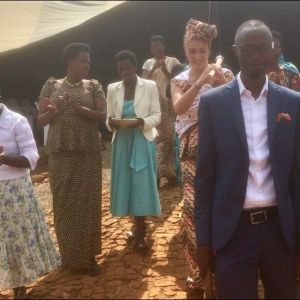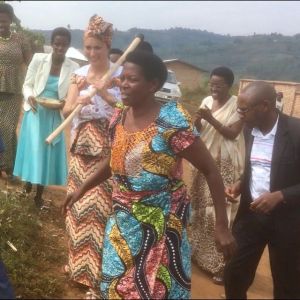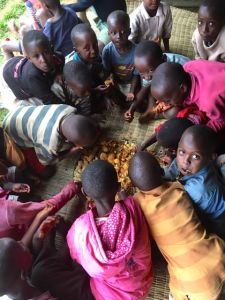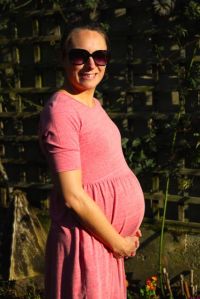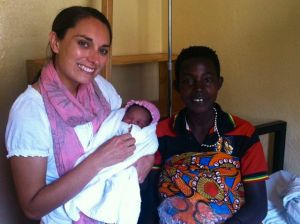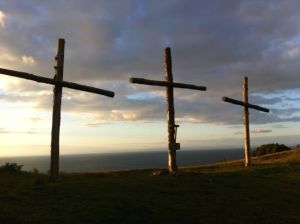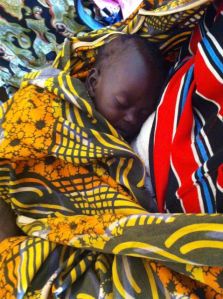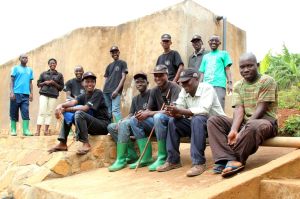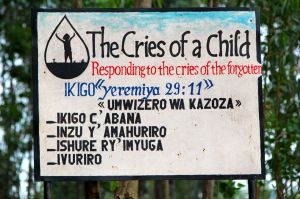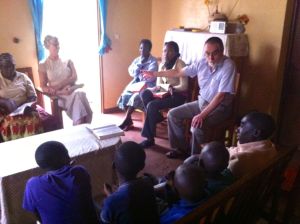For a while I have wanted to write some notes on the differences in parenting a baby across cultures. I have been asked a number of times, “What are the main differences between bringing up a child in the UK and in Burundi?” I am no expert, and like the other comparison posts I have written, I am not stating that one culture is better than the other, or one way of parenting is the right way. No, it is more an opportunity to explore the differences between cultures. Caleb is 15 months old and I have 14 weeks experience of parenting a baby in the UK (first 11 weeks of his life, plus 3 weeks when he was 10 months old) and the rest has been in Burundi! Within Burundi there are differences between city and rural living. We live in a more rural setting, which is the context I have used for the comparisons below. The city has been more influenced by some western ways. Some of the things I have struggled with being a Mama here in Burundi are more to do with the fact that I ‘stand out’ being the only white person where we live rather than because of the culture.
A child is for the community
There is a Burundian proverb “Umwana ni uwa bose” which means “A child is for the community”.
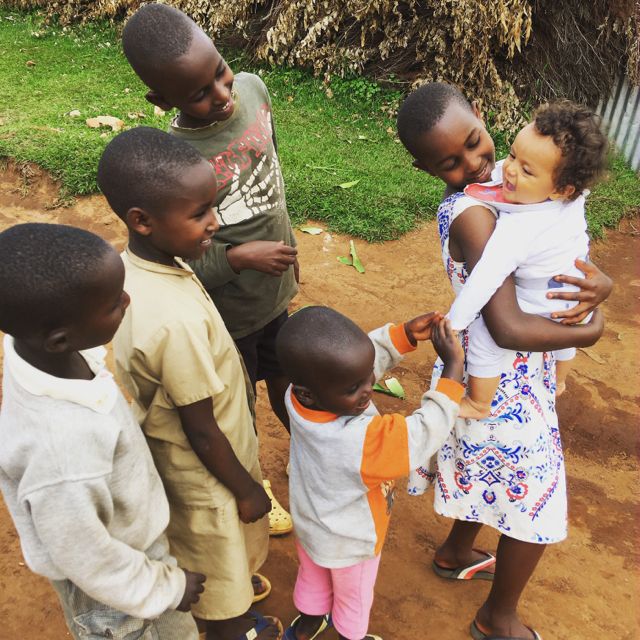 Caleb with the neighbourhood children
Caleb with the neighbourhood children
We have definitely seen that this is true! Everyone loves to hold a baby and whether that is a relative, a friend or a stranger on the street it is normal for a baby to be passed around. With Caleb’s unique skin colouring we have seemed to draw even more attention to ourselves than we would perhaps desire. A daily walk around the block often turns into children running behind us, which I am generally ok about, but when grown-ups start running after us to get a glimpse of the baby on my front and more latterly on my back I often have anger rising up within me. Argh. Don’t misunderstand me, I am more than happy for relatives and friends to interact with Caleb and in fact I think it is such a blessing for the community to engage with a baby. Such a richness and Caleb is certainly a very sociable little boy, which I am sure growing up in the community here has definitely impacted him very positively. He is much happier when there are visitors around the meal table and there is always excitement on his face when he goes out of the front gate. However, I find it super hard when people I don’t know expect to touch him and hold him. One example, which I am not proud of, was when we went to the market on a Sunday afternoon. Claude was with me and Caleb was on my back. A huge crowd gathered around us and I shouted at them to continue shopping. We walked off and went to buy the avocadoes we wanted. A group of women gathered behind us and out of the corner of my eye I saw a lady touch Caleb’s arm to greet him…without even thinking about it I swung round and hit her across the face. I don’t know who was more shocked – the lady or myself. Oh dear, the white missionary hit a lady in the market. Thankfully, the lady wasn’t physically hurt and there were no repercussions. I no longer take Caleb to the market.
In the UK, my experience is that people are interested in babies, but there are no expectations to hold them. Relatives and friends would ask for a cuddle before taking Caleb from his cot or pram. Strangers would pass comment about the ‘cute baby’ in the pram, but would never attempt to touch him. Having a baby is much more of a private close family experience rather than a community event.
Crying
No one likes to hear a baby crying. Especially a mother! But the reality is babies cry. In Burundi, the general answer to a baby crying is to feed the baby. I think I found this the biggest challenge arriving back in Burundi with a small baby and every time Caleb cried I was told to feed him. It didn’t matter where I was – at home, on the road, in a neighbour’s house, in a government office – the response was always feed him. Men and women, young and old, all would tell me to feed him. One day we were in the immigration office for a whole morning. We were all tired. I had sat in a corner and fed Caleb. He was overtired and couldn’t drop off to sleep. Standing in a long queue with Caleb in my arms he started to cry, the increasing crescendo type of crying, and everyone looked in disbelief that the white lady was letting her baby cry. Comments and suggestions of feeding him were pouring in from every direction. I got moved to the front of the queue and told to sit and feed my baby! I was beat, and even though I knew he wasn’t hungry I sat down and fed him in front of the eager crowd! You could hear the sighs of relief echo around the hall. Demand breastfeeding is definitely the norm here in Burundi, which leads me to the next comparison of routines.
Routines
In a Western context, routines are encouraged. Perhaps, not always in regards to feeding, especially with a newborn, but as the baby grows regular feed and sleep times are encouraged. The books explain it. The healthcare team describe it. Reality is it doesn’t always work like the books or experts say. Here in upcountry Burundi it appears baby routines are not really a thing. Babies are on their Mama’s back (or a Nanny’s if the Mama has gone back to paid employment). When the baby cries they are fed and then put back on the back so housework or hoeing can continue. As the baby grows and starts on solids then regular meal times are followed and eventually sleep patterns too. A typical sleep routine in Burundi for a toddler is to wake up at 7am or 8am, nap at 11am and again at 4pm. Bedtime is anytime between 8 and 10pm. For us, we implemented an early evening bath time and bedtime routine from when Caleb was 3 months old and tried to have regular feed times, perhaps a more Western approach. His typical sleep routine now at 15 months is wake up at 6am, nap at 8.30am and again at 1pm and bedtime 6.30pm or 7pm. Neighbours here are shocked that I would bath Caleb at 6pm as it is “too cold” and not the right time to bath him. And surely he is hungry if he goes to bed at 6.30pm or 7pm? When he was a baby, I tried hard to have regular feed times, however, I did do more demand breastfeeding than I planned and this was to try and ‘fit in’ with the culture here. If Caleb cried when we had visitors or were visiting others the easiest thing was to feed him even if it wasn’t the scheduled time!
Sleeping
Here in Burundi, co-sleeping is the norm. There is no discussion of safe sleeping, which was drummed into me at every pre- and post-natal appointment in the UK. At night the baby sleeps in the parent’s bed, often until a sibling comes along and then they are moved to another room and sleep with older siblings or the Nanny. It is really common to find babies sleeping with cloth or blankets covering them even in the heat (including over their head). Whether they are on a bed or on a person’s back. This always makes me nervous – how can they breathe? The UK advice is for a baby to be in their own cot in the parent’s room until 6 months and then they can be moved to their own room. Co-sleeping does happen in the UK and some parents think that this is really important for attachment. I am not saying one way is right or wrong, it definitely has to be a family decision. I am a really light sleeper and just can’t sleep if Caleb is in our bed! He has been in his own cot all the time and we moved him to his own room when he was 9 months old. Our neighbours have been so concerned about him being in his own room by himself at such a young age. No one should sleep alone, whatever the age! I remember when I first moved to Burundi and lived in the city with a family, a brother in his 20’s slept with the radio on all night so he wasn’t alone to sleep. So different to the more Western way of children having their own bedrooms!
In the daytime, babies in Burundi usually sleep on the back of the Mama or Nanny. A piece of cloth is wrapped around the baby and tied across the chest of the Mama. I love having Caleb on my back in this way, but even when he was small I couldn’t master the cloth tying so he would stay on me tightly for long enough to sleep. I joke that I don’t have the African bottom to hold a baby up!
 Caleb on my back the Burundian way!
Caleb on my back the Burundian way!
When Caleb was small we used a cloth sling to put him on our front and he would sleep when we would go for a walk. The community were intrigued to see a baby on the front and not on the back and more so when Claude was holding him as men are not seen carrying a baby in this way!
 Claude carrying Caleb in the sling
Claude carrying Caleb in the sling
We had real trouble with daytime nap times and Caleb refusing to sleep in his cot. I was exhausted and didn’t want him to sleep in a sling because then I couldn’t easily rest so we resorted to pushing Caleb in his pushchair around the front garden (outside the gate the dirt roads are not suitable for a standard pushchair). This provided lots of amusement for the neighbours – why would a child sleep in a moving chair when it is so straightforward for them to sleep on your back? Oh and then there is the dummy/soother/pacifier… such an alien thing here in Burundi and many people were concerned I was starving Caleb by using the soother instead of feeding him!
 Caleb asleep in the pushchair
Caleb asleep in the pushchair
Weaning
I was very happy to be in Burundi when it came to weaning Caleb onto solid foods. Not only are there lots of great weaning foods cheaply available at the market, but also the easy to wipe cement floors make mess so much easier to deal with!
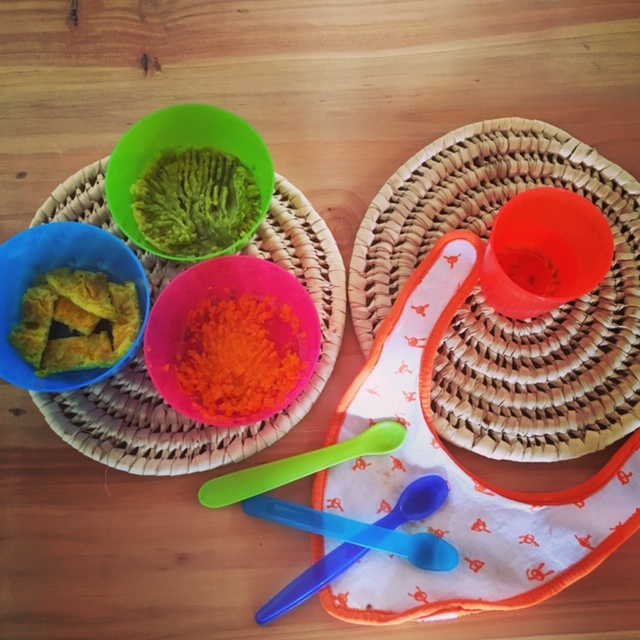 Weaning foods
Weaning foods
UK advice is to wait until a baby is 6 months until starting solid foods and there is a lot of information and advice. Baby-led weaning is now very common and we decided on a mixture of spoon-feeding and finger foods. In Burundi, most people wait until a baby is 6 months although some people do start baby rice earlier (if they can afford it as it is imported). From my experience in upcountry Burundi people are not used to giving babies finger foods and we had a lot of horrified visitors when we were giving Caleb pieces of food for him to hold in his hand and eat. I think the thing I found the most surprising and actually upsetting is that Mamas here stick to a very rigid weaning plan of a few foods, perhaps what has been done down the generations, and I feel babies miss out on some amazing nutritious and cheap foods such as avocado. The first weaning foods here are: local porridge made from a mixture of different grains (eg. wheat, rice, maize, soya, peanut), potatoes mashed with spinach and/or carrot, banana mashed with the juice of Japanese plums. Most Mamas I know here told me to do the same and were shocked that I was trying a wider variety of foods. In a lot of the UK advice avocadoes were mentioned as a great first food, they are expensive and not that tasty in the UK, and a wide variety or fruits and vegetables. So I was so disappointed that Mamas don’t give avocadoes here until a baby is 9 or 10 months old. I have made it a priority to encourage Mamas here to start giving them at 6 months! Sadly, giving babies small glucose biscuits (very high sugar content) is very common here and this is another thing I want to encourage Mamas to avoid with young babies and to stick to the more natural sugars found in fruit.
Meal times
Culturally in Burundi children rarely eat at the table with their parents. Nannies often help feed babies and children in a separate room or their mealtime is before the parents. Growing up in the UK, family meal times were such a precious time, they still are, and Claude and I wanted to implement that here with Caleb. We tried to buy a plastic highchair in the city, but the one we found was faulty and expensive. Therefore, we asked our local carpenter to make one. It is the first baby chair he has ever made, it isn’t perfect, but we love it!
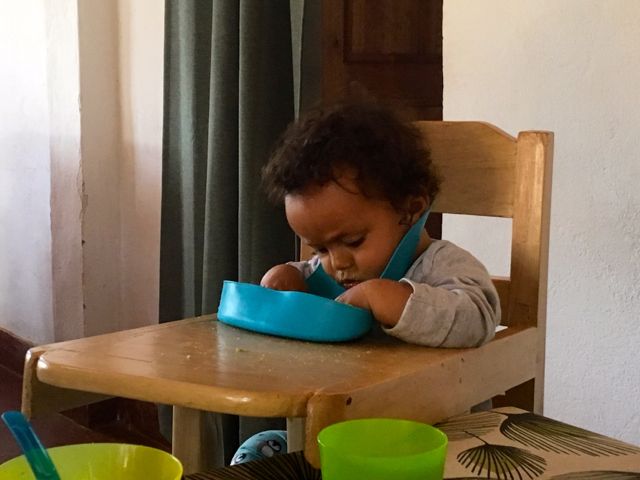 Caleb in his homemade highchair
Caleb in his homemade highchair
Right from 6 months Caleb joined our meal times and now happily sits for a whole mealtime in his chair. Like I said before, if we have visitors then he is even happier!
Play
We have been super blessed with toys and books for Caleb to play with and even though he doesn’t have lots compared to children in a Western context he has so much more than the local children here. We have shared some with his twin friends down the road and they come and play here too.
 Caleb with the twins
Caleb with the twins
I have learnt a lot from the Mamas and Papas here in Burundi about play without toys… singing, dancing, noise, feeding the animals, using household objects such as old water bottles or cream containers. In fact, I can put Caleb’s toys out for him to play with, and he is happier kicking a homemade ball outside or banging a stick on an upside down washing bowl! Like all children, he watches and learns and wants to do what the other children are doing. Toddler groups, nurseries, library singsongs or soft play areas are not available here. However, we are very thankful for a toddler group in the city run by missionary friends, which we try to go to every few weeks. It is good for Caleb to interact with other English-speaking children, and of course I really enjoy the fellowship with other Mamas. A huge part of our day is spent outside going for walks, feeding the goats and playing in the garden.
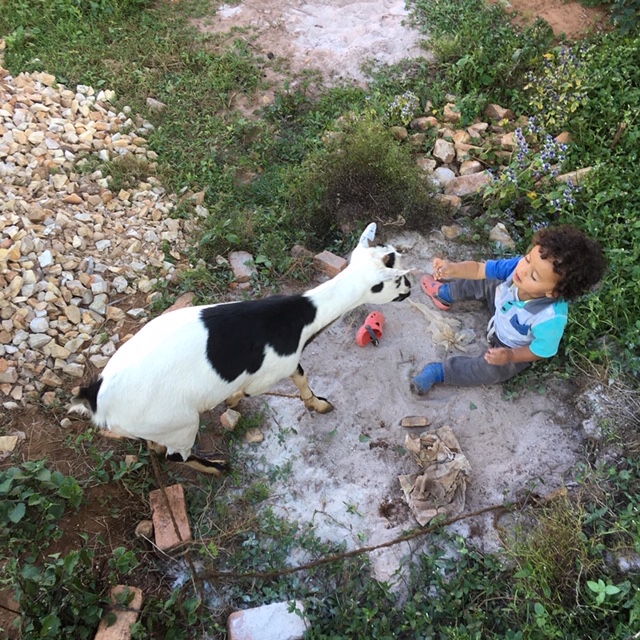 Caleb feeding his goat
Caleb feeding his goat
We have been reading books to Caleb since he was really small and now he loves to go to get a book from his shelf on the bookshelf. Claude loves to read to him in French and I stick to English! Caleb’s favourite books are those with animals in and he is currently more interested in spotting the animals on each page rather than listening to the stories. Here in Burundi there are very few children’s books available and it is not usual for parents to sit and read with their children.
 Storytime
Storytime
~~~~~~~~~~~~~~~~~~~~~~~~~~~~~~~~~~~~~~~~~~~~~~~~~~~~~~~~~~~~~~~~~~~~~~~~~~~~
I am sure there are many more aspects to parenting that could be discussed and compared and I know that I am only just beginning on my parenting journey. The most important aspect of parenting has got to be love and regardless of country or culture or language or age, that four-letter word must be prioritised and embraced in every aspect of raising a child. And that is my prayer, that I will grow in love as I parent Caleb across cultures.


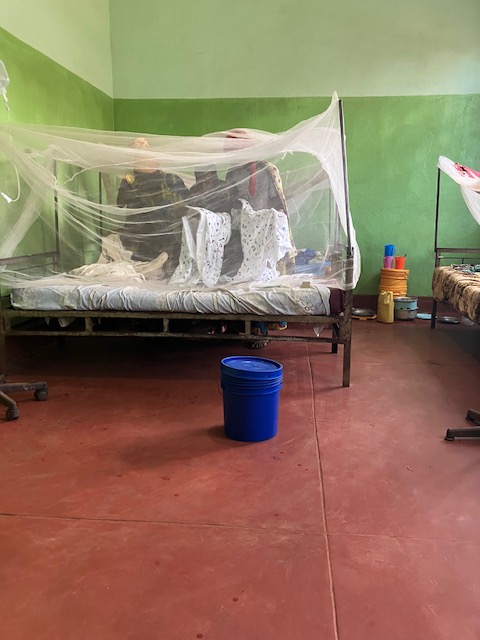

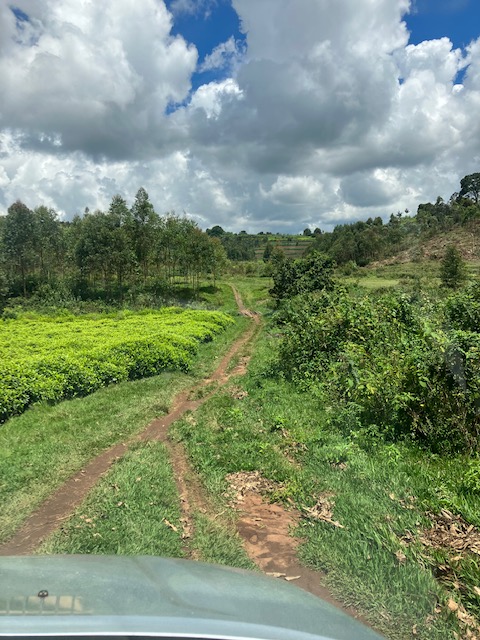



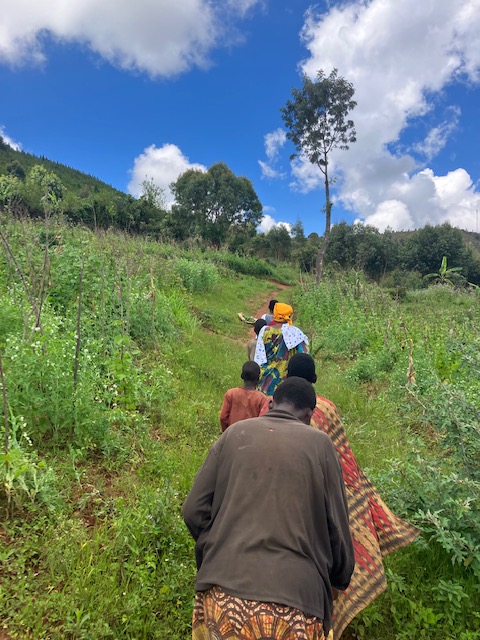



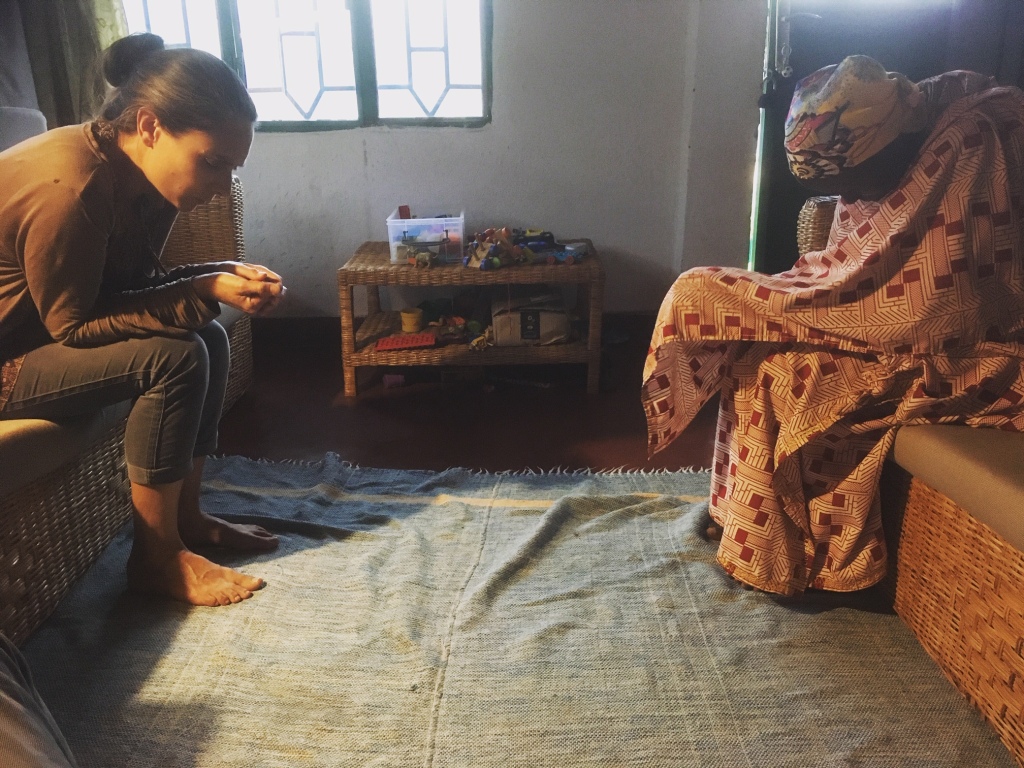
 Caleb with the neighbourhood children
Caleb with the neighbourhood children Caleb on my back the Burundian way!
Caleb on my back the Burundian way! Claude carrying Caleb in the sling
Claude carrying Caleb in the sling Caleb asleep in the pushchair
Caleb asleep in the pushchair Weaning foods
Weaning foods Caleb in his homemade highchair
Caleb in his homemade highchair Caleb with the twins
Caleb with the twins Caleb feeding his goat
Caleb feeding his goat Storytime
Storytime





